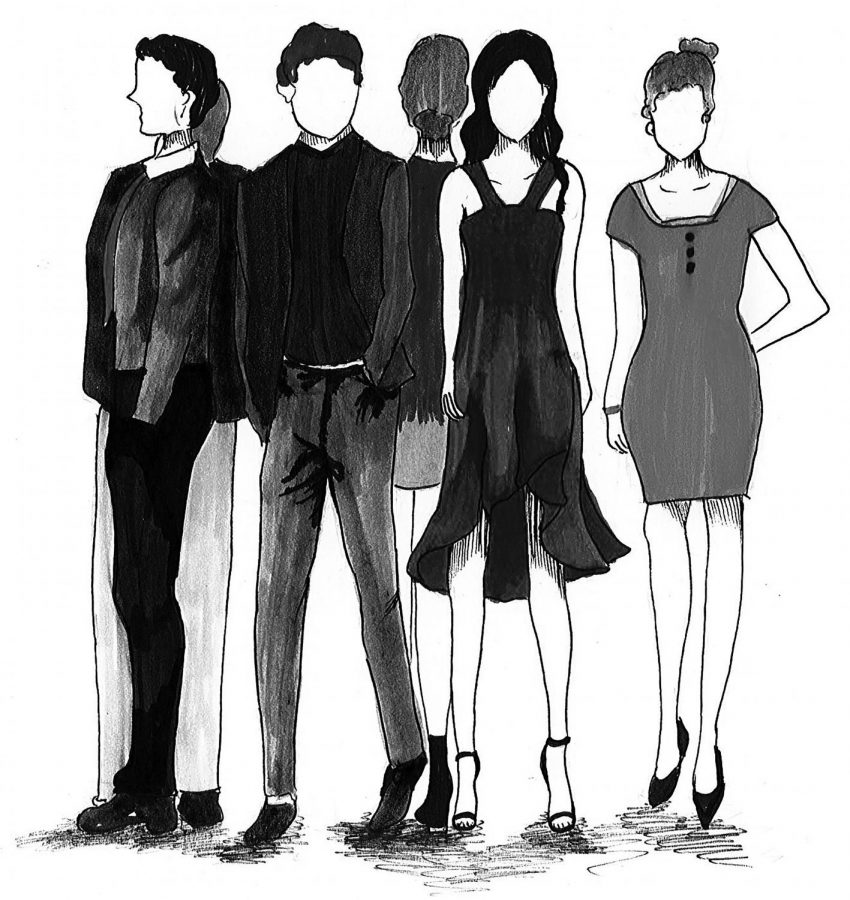Dress Up Days Distract from Purpose
May 22, 2018
When the dress code was finally scrapped in 2016 for the all-inclusive “dress philosophy”, students donned their ripped pants, flaunted their finest t-shirts and expressed their individuality through their clothing. Because of the philosophy, students can wear whatever their hearts desires under a few conditions. So long as outfits do not violate the tradition Jeans Day or wear, according to the 2017-2018 Family Handbook, “clothing best suited for bed,” students have choice each morning about what to wear. However, a new asterisks to the dress philosophy is currently being debated within Executive Committee, with a proposal for “dress up-days”.
The proposal was brought forth at the end of April in Executive Committee, and suggested that students dress in Head’s Dress (formal attire consisting of dress pants, a skirt, or dress for females and tie and jacket for males) to school for days that may be deemed as “formal” such as Faculty Appreciation Day, and Martin Luther King Day, as well as days before breaks.
Wed. May 2 marked the first Upper School “dress-up day”, requiring students to wear Head’s Dress during the school day to show respect for their teachers on National Teacher Appreciation Day. However, this attempt to wear more formal clothing completely missed the mark.
The intended goal of the “dress-up day” was to outwardly express students’ appreciation for faculty and staff by wearing Head’s Dress. Yet, the required Head’s Dress came along with other connotations. By requiring students to wear a dress or suit and tie to show respect for our teachers, the amount of respect that one has for their teachers is immediately equated to the outfit a student wears. So, if a female student chooses to wear black shorts instead of a skirt, she would be deemed to be outwardly disrespecting her teachers. The dress-up day puts an emphasis on the clothing each student is wearing, not the the kindness or respect that a student should be showing to their teachers for Teacher Appreciation Day.
Not only did the “dress-up day” equate respect to materialistic items, but didn’t take into account many international and boarding students. When returning back to campus from break, some students pack a certain amount of formal-wear outfits for the remaining Head’s Dress dinners.
“I didn’t pack any other formal outfits when I came back from break. We were informed too late,” senior and international boarding student Amanda Taylor said. Taylor also reached out to Head of Upper School, Matt Ives, sending an email describing how “many [international students] budget [their] money for the month and don’t have access to transportation before Wednesday to go out and buy an outfit.” Taylor wrote, “I do think the word ‘required’ doesn’t take all socioeconomic status and border accessibility issues into consideration.”
The concept behind the “dress-up day” is valuable: do something out of your way to appreciate your teachers. However, putting an emphasis on student clothing is not the way to express this. In lieu of having a dress up day, students could be encouraged to write their teachers notes or give small tokens of appreciation to show they care. The lack of consideration that “dress-up days” fosters is not one that follows Masters’ core values. By simply having a “required” day of Head’s Dress, the inclusive momentum that Masters had gained two years ago by eliminating the strictly enforced dress code came to a halt. Masters should take into account all perspectives and remember the real reason that the dress code was altered in the first place.




